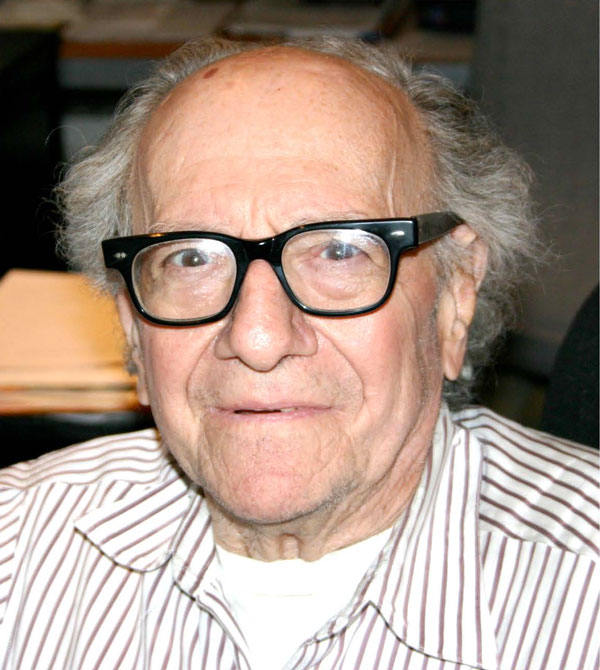
BY JERRY TALLMER | The happiest place I ever lived was a one-room apartment — or one and a quarter rooms — one flight up at 62 Perry Street in Greenwich Village. It was a good-sized rectangular room — the tiny adjunct was the stoveless double-hotplate — facing south over a congregation of backyard gardens, one of which belonged to the three women who owned 62 Perry Street and were my landladies.
Two of these women, Roz and Ruth — a book editor and an anthropologist — were what nowadays are called longtime partners, and inhabited the floor-through (the garden apartment) just below me.
The third landlady, call her Orchid, lived further upstairs, alone except for the come-and-go lovers, gender unknown, with whom she usually quarreled. You could hear the bitter recriminations — indeed, you couldn’t not hear them — through the ventilation grid at the head of my bed.
This Orchid ran one of the new mushrooming crop of what would soon be called Off Broadway theaters, and was a didactic political leftist in that and other matters. Well, I guess they all were leftists, Roz and Ruth, too, if somewhat more quietly than Orchid.
One night in the early 1950s I was invited to have tea and/or drinks with Roz and Ruth. When I arrived there were a couple of other guests already there — a large, formidable, argumentative woman thumping a huge heavy wooden staff into the floor to emphasize this point or that point, like Little John knocking Robin Hood into the rushing stream; and, seated nearby on the floor itself, a large, muscular, soft-spoken, red-headed young man sporting a big red beard.
Gradually, it began to dawn on me that the formidable woman with the staff was none other than — wham! whack! — Ruth’s colleague, world-famous anthropologist Margaret Mead. But I was interested in the red-bearded young man, who was so outraged about the rapidly despoiled and disappearing Greenwich Village — as was I — that he wanted the whole damn area from 14th Street down to below Houston Street declared an untouchable civic landmark. Said his name was Ed Fancher. Said he was a Greenwich Village furniture hauler who had been to college in Alaska and was now taking a course in journalism at the New School.
I told him about the wondrous evening I’d had a year earlier, wandering through the Village with a girl named Peggy from bookstore to art store to magazine store to historic restaurant to another historic restaurant to one beautiful block after another, and then taking the same walk a year later and finding it all gone, ripped down, ripped out — gone with the wind of commerce and “progress.”
To the red-bearded young man I said something banal, like, “More power to you,” and after a while went upstairs to bed.
It would be maybe a whole year still later — when newlyweds Peggy and I had moved to a larger apartment, a skylight studio around the corner on West 11th Street — that I heard from Edwin C. Fancher again.
“Remember me?” he said. “We met at Roz and Ruth’s. I’m calling because my friend Dan Wolf and I are going to start a new Greenwich Village weekly newspaper, along with Norman Mailer” — aha, the bait! — “and we thought you might want to come and talk with us… .”
I said: Gee, thanks, but what I most need right now is money; good luck and all that, but no thanks.
A week later, as I was staring out the window at the pigeons on the cornices across the street and cursing my existence as a blocked writer, the phone rang again. It was Ed Fancher, inviting me to have lunch with him and this Dan Wolf at the scrungy Chinese restaurant on Eighth Street… .
At 62 Perry Street, where I would move back after that interregnum on West 11th, the view faced, as I’ve said, to the south. You looked out over all those backyards through either of the room’s two tall windows, one of which, the one on the right, could never be fully closed, rain or shine or snow or hail or thunderstorm or dark of night, because of the wisteria tendrils snaking up and through a three-inch gap at the top edge of that window. Summer or winter, flowering or bare, the wisteria tendrils reached out like arms, hands, and fingers along the top of that whole wall. Bare ruined choirs, where late the sweet birds sang.
That whole side of the room, the invading wisteria side, was painted baby blue or light sky blue, depending on how you wanted to think about it. The opposite side, the side to your left as you entered the apartment and faced the windows, was entirely heart-stopping, built-in bookshelves, floor to ceiling, top to bottom, with a door in the center that gave access to the compact bathroom and shower.
Imagine walking into that apartment for the first time and seeing that entire wall of empty bookshelves, and then, as quickly as time, energy, and money permitted, filling up those gaping shelves with all the millions of hard-cover and soft-cover words and people — Joyce, Proust, Stendhal, Yeats, Henry James, Hemingway, Mark Twain, Mark Harris, John O’Hara, Scott Fitzgerald, Irwin Shaw, Christopher Isherwood, Graham Greene, Edmund Wilson, and the whole regime of Barney Rosset’s Grove Press — that one wished to live and die by.
And girls — girls came to that apartment, now and then, bringing new life, like the recurrent wisteria — E.E. Cummings’s ever-recurring spring.
One of these rebels with a cause would be the 19-year-old from Long Island whom I married, but there were girls there after and even before the very end of the half-decade’s marriage to slim, daring, irreverent Peggy Muendel.
The main such frequent lovemaking visitor, ever revisiting in my head all these decades later through the wisteria tendrils of memory, was for a whole year at the start of The Village Voice a loving, love-hungry editorial assistant who shall here bear the pseudonym Laura Gates Mason Worthy, thus disguised just in case, God be praised, she is today still alive and a happy great-grandmother somewhere on this earth. Worthy was her salesman husband: Willy Loman turned inside out.
In “Earth and High Heaven,” a pretty good postwar novel by Gwethalyn Graham, the Jewish guy says to the gentile girl: “Well, we’ve put our magazine to bed. Now let’s us go to bed.”
That’s how it was for the two of us, Laura and myself, for a whole year and more, as The Village Voice was making its way into the world.
Once a week, Laura and I and perhaps Ed Fancher or Dan Wolf and one or two others would, without any sleep for 24 hours, drive (Ed or I would drive) to a printer across the state, or out on Long Island, or whoever else would have us.
We would spend almost all night there at the printer’s, would close the issue, would drive back to the city and the Village, let our colleagues (if any) out of the car, and then Laura and I would speed back to 62 Perry Street and fall into bed. Only first Laura — a great big healthy Scottish-Irish American blonde beauty — would insist that she and I go out around the corner to Fedora on West Tenth Street to get something to eat. Then back to 62 Perry Street and to bed.

















